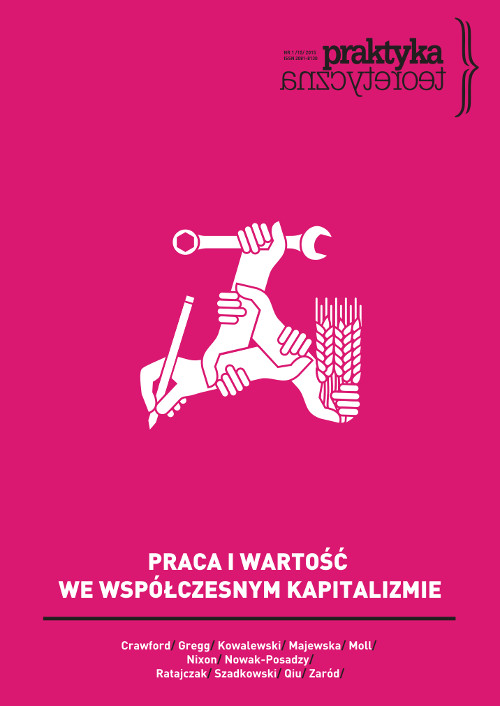Rozłam w operaizmie w świetle dynamiki włoskiego ruchu robotniczego w „czerwonym dziesięcioleciu” (1969–1980)
Split within operaismo in the context of dynamics of the Italian workers movement during the “Red Decade” (1969-1980)
Author(s): Zbigniew Marcin KowalewskiSubject(s): Politics / Political Sciences, Economy, Political Theory, Political economy
Published by: Uniwersytet Adama Mickiewicza
Keywords: operaismo; split; Mario Tronti; Raniero Panzieri; autonomy of the political; Marxism
Summary/Abstract: In consequence of initiative of Raniero Panzieri operaismo emerged in 1960-1961 as a stream of radical theoretical revival of Marxism in the context of widespread domination of objectivism and historicism and equally radical revival of strategy of workers movement in its struggle against its internal dominant reformist tendency. Its foundation was supposed to be a reading of Capital “from the workers point of view”. It soon become apparent that it is a fundamentally divided project, both politically and theoretically. 1963 marks a split within operaismo. Majority that sided with Mario Tronti detached, developing an anti-materialist revision of Marxism that resulted in creation of metaphysics of workers’ autonomy. In 1969-1980 an enormous wave of working class struggles brought to the fore clear conclusions in fundamental disputable issues that divided operaistas.
Journal: Praktyka teoretyczna
- Issue Year: 2015
- Issue No: 15
- Page Range: 163-214
- Page Count: 52
- Language: Polish

